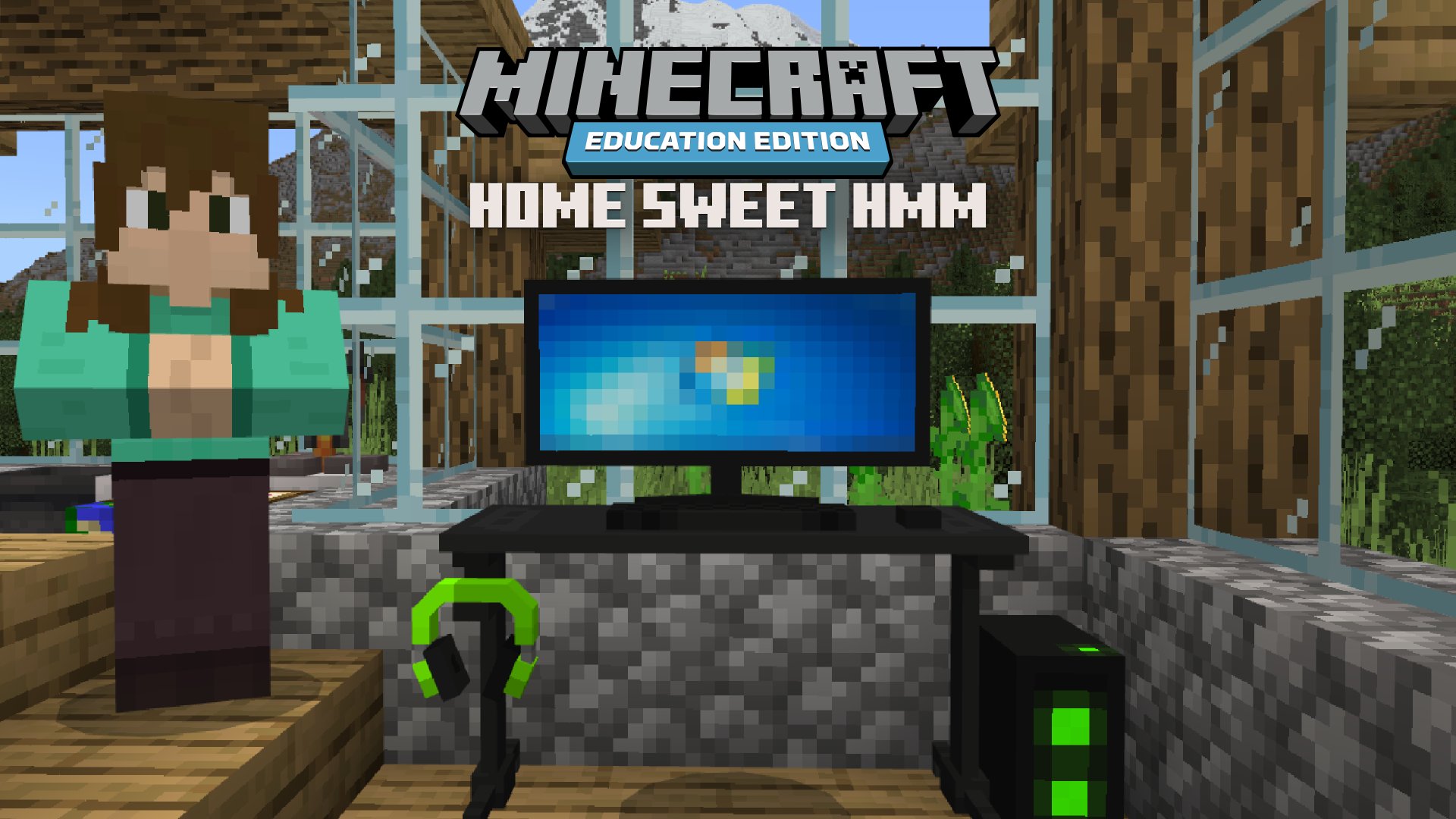Now more than ever, the Internet is part of our daily lives, including our children’s lives. For children all over the world, going online is central to their education, how they connect and play with friends, near or from afar, and have fun. At Xbox, we believe that technology and gaming can have a positive impact on our lives, but as with everything, understanding (and knowledge of) safe use is essential. It’s crucial that children and those who are new to using the Internet learn how to navigate it and online gaming safely – these are important skills they can use throughout the rest of their lives.
Ahead of the 19th annual global Safer Internet Daywe want to empower children, parents, caregivers and educators with resources to help them understand online safety and how to be responsible digital citizens. Minecraft: Education Edition has created a new immersive world, CyberSafe: Home Sweet Hmm that is designed to help young people learn to recognize common threats on the Internet, build strategies for protecting themselves and their information, and know where to go if they need help. It’s a fun way for students to learn about online safety while playing in their favorite blocky universe!
CyberSafe: Home Sweet Hmm is a fun and creative introduction to cyber safety for children aged 7—12. It’s available for free to all Minecraft: Education Edition users. The name “CyberSafe: Home Sweet Hmm” comes from the familiar sound of Minecraft’s iconic villagers, who don’t speak but rather grunt “hmm.” In the CyberSafe adventure, this sound also represents the act of pausing to think about how to navigate the Internet safely.
This game-based learning experience introduces fundamental cyber safety principles and demonstrates ways to stay safer online. The single-player lesson provides Internet safety scenarios to help children make informed decisions by focusing on one guiding principle: Stop and think before you click. The adventure will be available in the Education Collection of the Minecraft Marketplace in March.

Players begin the game in their virtual home, where they’ll meet the Trusted Adult, a non-player character (NPC) that acts as a guide through the game. From there, players progress through four pillars of cyber safety, from verifying their contacts’ identities and protecting their passwords to phishing prevention and avoiding scams. CyberSafe features four challenges:
- Want to play online with me?
A friend from school invites the player into an online game and shares their username. But when players make their way through the Internet to the game lobby, they run into a problem — there are four friend requests, all with very similar handles. They’ll have to discern which friend request to accept based on the details of the usernames. This activity aims to reinforce the idea of connecting safely with others online. - Online maze? I can complete it!
The player travels through the Internet to arrive at a maze where the Pro Gamer NPC waits for them. The NPC says they have cheat codes to help the player through the winding maze. They must decide whether it’s safe to exchange their login information for the codes. This activity is designed to remind young players about not exchanging login information with anyone. - New emerald armor ?! Definitely!
The Trusted Adult has ordered new emerald armor from MineMart, but they’ve received a message about an issue with the order. The player must travel through the Internet to MineMart, where they’re told they’ll need to enter their account information. Then, they must choose whether to provide that info. This activity is a reminder to secure personal information and not share with others. - Yummy! Pumpkin pie!
The Trusted Adult asks the player to buy a pumpkin pie from a familiar site online. But when the player searches, they find several different results for pumpkin pies. Their player’s goal is to choose the correct product based on familiarity, reviews, recommendations, and other sources of trust. This activity reminds young players to assess quality of information based on a variety of factors.
In each of these scenarios, players not only have the chance to make decisions about the right or wrong course of action, but also learn to seek advice from their Trusted Adult. These challenges teach the player how to practice thinking before they click and reinforce that they can rely on the support of a trusted adult – a parent, caregiver or other adult they trust – to guide them safely through life on the Internet. The challenges also encourage conversations between the player and their trusted adult so they can learn, grow, and play together.
Once players have completed the game, they’ll have an opportunity to reflect on what they’ve learned.

Share CyberSafe: Home Sweet Hmm with a student in your school, family, or community today:
We also encourage parents and caregivers to explore tools for supporting safer Internet behavior and gaming. Download the free Xbox Family Settings app to use simple tools to manage your child’s console gaming and download the Microsoft Family Safety App to unlock physical and digital safety features that empower you and your family to create healthy habits and protect the ones you love. Importantly, “CyberSafe: Home Sweet Hmm” can also serve as a conversation starter to keep players engaged about online safety.
Xbox is deeply invested in the safety and well-being of our players. Just last year, Microsoft acquired a long-time partner Two Hat, a leading content moderation solution provider, with a vision to build better experiences for everyone. Additionally, our text chat filters empower players to customize their gaming experience and decide what kind of content is ok to receive and what is not. The filters automatically block content before it reaches the player and they are a great way to help prevent negative experiences. Our players are at the center of everything we do, and we’re committed to providing choice in how they play.
Also today, Microsoft released the results of its 6th annual study, “Civility, Safety and Interaction Online – 2022” and the newly updated “Digital Civility Index” (DCI) score, which looks at people’s exposure to online risks, their experiences of life online and more. This year’s global DCI score stands at 65%, which is the best it has been since the survey began in 2016. To read more about this year’s results, visit this link.
Safer Internet Day 2022 is a meaningful opportunity to work towards a digital world where everyone, including students, parents, caregivers, and educators, is empowered to use technology responsibly, respectfully, critically, and creatively. There is more work to be done, but we are committed to continued improvements. Together, let’s work towards not just a safer Internet, but a better online world.













